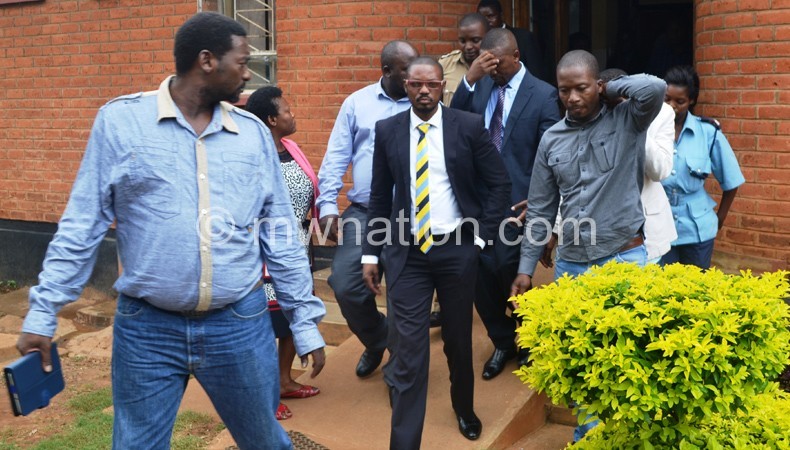Cashgate convict seeks acquittal
One of the key Cashgate convicts, Maxwell Namata, has asked the Supreme Court of Appeal in Blantyre to acquit him arguing that his conviction and sentencing by the High Court in Lilongwe was based on unfounded evidence.
Namata and his accomplice Luke Kasamba were handed eight and five years custodial sentences respectively on February 16, 2015 on two counts of theft and money laundering contrary to Section 35(1)(c) of Money Laundering and Terrorist Finance Act for the amount of K24,179,120.70 ($42 419.51).

However, the two appealed against both their convictions and sentences at the Supreme Court of Appeal in September 2015 and the case entered trial today before a panel of Justices Rezine Mzikamanda, Lovemore Chikopa and Anthony Kamanga.
But in a twist of events, lawyer Davis Lameck representing Kasamba told the court that after reflecting on the matter his client had freely decided to withdraw his appeal case.
Namata’s appeal is based on eight grounds which his lawyer Michael Chipeta summarized into two categories.
In the first category, Namata is challenging his conviction, both on the theft as well as money laundering offences, while in the second category he is challenging the veracity of his sentence arguing that it was contrary to law and manifestly excessive.
Chipeta argued that the evidence brought before the High Court showed that government consented in issuing the payments of the money as such it could not be said that the elements of the offence of theft were proved.
While making reference to an earlier Supreme Court judgment, Chipeta also argued that once the money, deposited by a customer is in the bank, ownership of that money no longer belongs to the customer but bank.
“In this case the cheques were deposited in Standard Bank whether they were cashed later on by whoever got the payment from Standard Bank it can’t be said that ownership of that money was government it was Standard Bank according to this case [Supreme Court earlier ruling] that I am referring to,” explained Chipeta in an interview later.
He said his client wanted the court to set aside his convictions because the offences were not proved as such he should be acquitted and the “sentences which are wrong in principle should also be set aside.”
In the alternative, Chipeta argued that should the court validate Namata’s convictions “the appellant wants a reduction of the sentences and not only a reduction but if the sentences have been reduced, they should be ordered to run concurrently and not consecutively.”
“On the second category regarding the sentences, our major argument is that if the convictions were wrong it automatically follows that the sentences were also wrong in principle,” said Chipeta.
On her part Director of Public Prosecution (DPP) Mary Kachale said in a brief interview that the defence counsel submitted technical arguments that could be dealt better in full submissions to the Court.
Meanwhile, the court has adjourned the case to a date to be advised but the two parties have to file for submissions on their arguments within 21 days.





